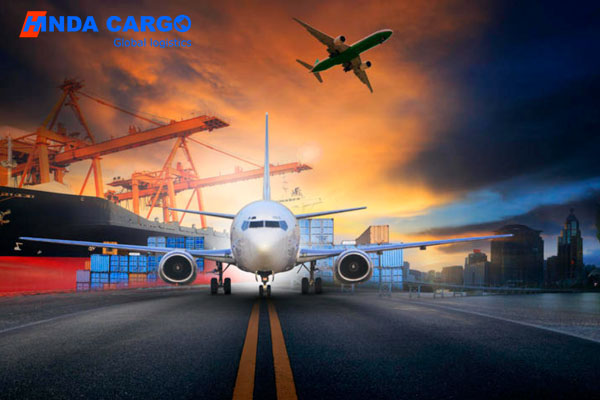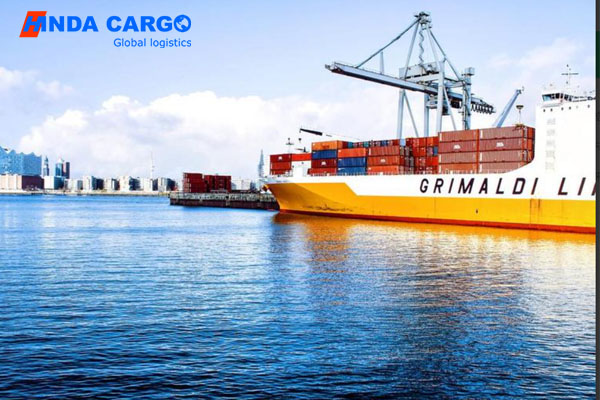What does international sea freight do?
International sea freight is a vital part of world trade, transporting goods through sea routes, connecting countries and regions around the world. Understanding the role and characteristics of international sea freight is of great significance to understanding the global trade pattern. In this article, we explore the role of international ocean shipping and its place in global trade.
What does international sea freight do?
International sea freight is an important mode of cargo transportation that uses sea routes for transportation rather than by roads or air channels. Typically, international sea freight is intended to connect two countries separated by oceans, so it has an international character.
Through large ocean shipping vessels, international ocean shipping can effectively transport bulk cargo from one country to another, including but not limited to various types of cargo such as raw materials, finished goods, food and energy.
Compared with other modes of transportation, sea transportation has the advantages of large carrying capacity, low cost, and low energy consumption. It is especially suitable for long-distance transportation of large quantities of goods over long distances.

Sea transportation has the following characteristics:
1. Sea route transportation: International sea freight is a method of transporting goods through sea routes. Container ships or bulk cargo ships are usually used to transport goods. This method can cross oceans, connect ports around the world, and realize the exchange of goods on a global scale.
2. International: Since the ocean is the largest transportation channel in the world, international sea freight is usually the main mode of transportation connecting two countries separated by oceans. Therefore, maritime transport is by definition international, involving cross-border trade and transcontinental transport.
3. Cargo diversity: international ocean shipping can transport various types of goods, including but not limited to raw materials, finished products, grain, minerals, etc. Whether it is bulk cargo or container cargo, it can be transported by sea.
4. Economical and environmentally friendly: Compared with air transportation, sea transportation usually has lower costs and has less impact on the environment. This makes ocean shipping one of the preferred modes of transportation chosen by many businesses.
What are the transportation methods of international ocean shipping?
Ocean international shipping has various modes of transportation, mainly including container ship transportation, bulk carrier transportation and liquid cargo ship transportation. Container ship transportation is currently one of the most common shipping methods. Goods are loaded onto ships through containers for transportation. It is suitable for the transportation of all types of commodities and goods. Bulk carrier transportation is mainly used to transport bulk cargoes, such as coal, ore, grain, etc. Bulk cargoes are usually loaded directly into the ship's hold for transportation. Liquid cargo ship transportation is specially used to transport liquid cargo, such as petroleum, chemicals, etc., using specially designed oil tankers or chemical tankers for transportation. These different modes of transportation can select the most appropriate solution based on the nature, quantity and destination of the goods to ensure that the goods can be delivered to the destination safely and efficiently.
What is the status and impact of international ocean freight in global trade?
International ocean freight plays a vital role in global trade and is one of the important pillars of the global trading system. Maritime transportation provides convenient and efficient cargo transportation channels for countries around the world, and promotes the development and prosperity of international trade. At the same time, international ocean shipping also promotes economic ties and cooperation between countries and enhances international interdependence. Through maritime transport, goods and resources from different countries can be exchanged, providing important support for the growth and development of the global economy. In addition, international ocean freight also provides broad employment opportunities for various countries, promotes the development of the shipping industry and related industries, and is of great significance to the stability and sustainable development of the global economy.

What impact does international sea freight have on global trade?
International ocean freight has an important impact on global trade, which is mainly reflected in the following aspects:
1. Promote global trade: As one of the most important modes of transportation in the world, international sea freight has greatly promoted the development of global trade. It breaks geographical barriers and makes trade between countries more convenient and frequent.
2. Reduce trade costs: Ocean shipping generally has lower costs, especially for bulk cargo and long-distance transportation. This reduces the company's operating costs and improves the competitiveness of products.
3. Expand the market: Through shipping, companies can quickly deliver products to all parts of the world and expand markets and sales channels. This helps increase a company's market share and international competitiveness.
4. Promote economic growth: As one of the infrastructures for trade, international ocean freight plays an important role in promoting global economic growth. It provides a good trade environment for all countries and promotes the development and improvement of the global industrial chain.
What are the challenges faced by international ocean freight?
Although international sea freight is developing rapidly, it also faces some challenges:
1. Safety issues: There are certain safety risks in maritime transportation, such as shipwrecks, piracy, etc., and safety management and safeguard measures need to be strengthened.
2. Environmental pollution: Waste gas and waste water discharged from shipping may pollute the marine environment, and environmental protection measures need to be taken to reduce the impact on marine ecology.
3. Trade barriers: Trade barriers and tariff policies implemented by some countries may affect the development of the maritime industry and increase transportation costs and risks.
4. Technology and facilities: The maritime industry needs to continuously update and improve ship technology and port facilities to adapt to changing market demands and transportation environment.
Summarize
As an important link connecting countries around the world, international ocean freight plays an irreplaceable role in global trade. Understanding the role, characteristics and challenges of international ocean freight will help us better grasp the global trade pattern and promote the development and prosperity of international trade.




